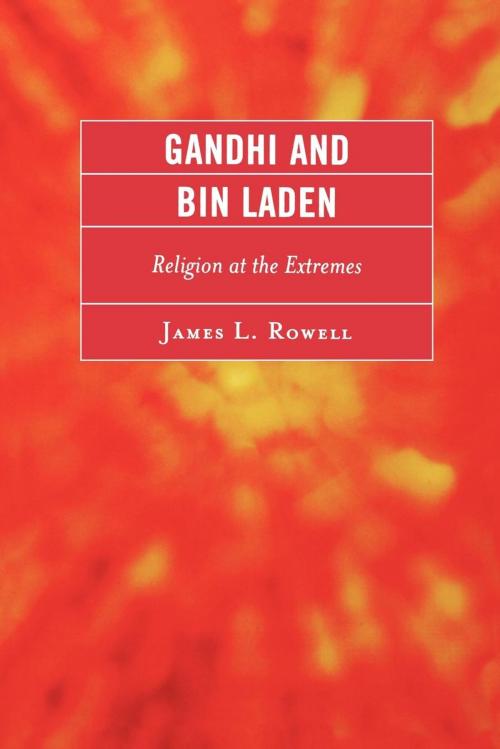Gandhi and Bin Laden
Religion at the Extremes
Nonfiction, Religion & Spirituality, Reference, Comparative Religion, Social & Cultural Studies, Political Science| Author: | James L. Rowell | ISBN: | 9780761847670 |
| Publisher: | UPA | Publication: | August 5, 2009 |
| Imprint: | UPA | Language: | English |
| Author: | James L. Rowell |
| ISBN: | 9780761847670 |
| Publisher: | UPA |
| Publication: | August 5, 2009 |
| Imprint: | UPA |
| Language: | English |
No two figures could seem further removed than Mohandas K. Gandhi and Osama bin Laden. Gandhi advocated an inclusive religious perspective, and believed that the highest ideals in religion led to the path of absolute nonviolence. In contrast, Bin Laden has concocted a militant and exclusive interpretation of Islam, and tried to justify some of the most barbarous acts of terrorism witnessed at the turn of the century. Can both men be equally 'religious' figures? As leaders of movements of political protest, do they have any points of similarity? Moreover, how can the religious philosophy of nonviolence respond to its nemesis, which takes life so easily and casually? These and other important questions are explored in this work that examines the lives and ideas of Mohandas K. Gandhi and Osama bin Laden, as well as that of Abdul Ghaffar Khan, a refreshing, nonviolent representative of Islam.
No two figures could seem further removed than Mohandas K. Gandhi and Osama bin Laden. Gandhi advocated an inclusive religious perspective, and believed that the highest ideals in religion led to the path of absolute nonviolence. In contrast, Bin Laden has concocted a militant and exclusive interpretation of Islam, and tried to justify some of the most barbarous acts of terrorism witnessed at the turn of the century. Can both men be equally 'religious' figures? As leaders of movements of political protest, do they have any points of similarity? Moreover, how can the religious philosophy of nonviolence respond to its nemesis, which takes life so easily and casually? These and other important questions are explored in this work that examines the lives and ideas of Mohandas K. Gandhi and Osama bin Laden, as well as that of Abdul Ghaffar Khan, a refreshing, nonviolent representative of Islam.















